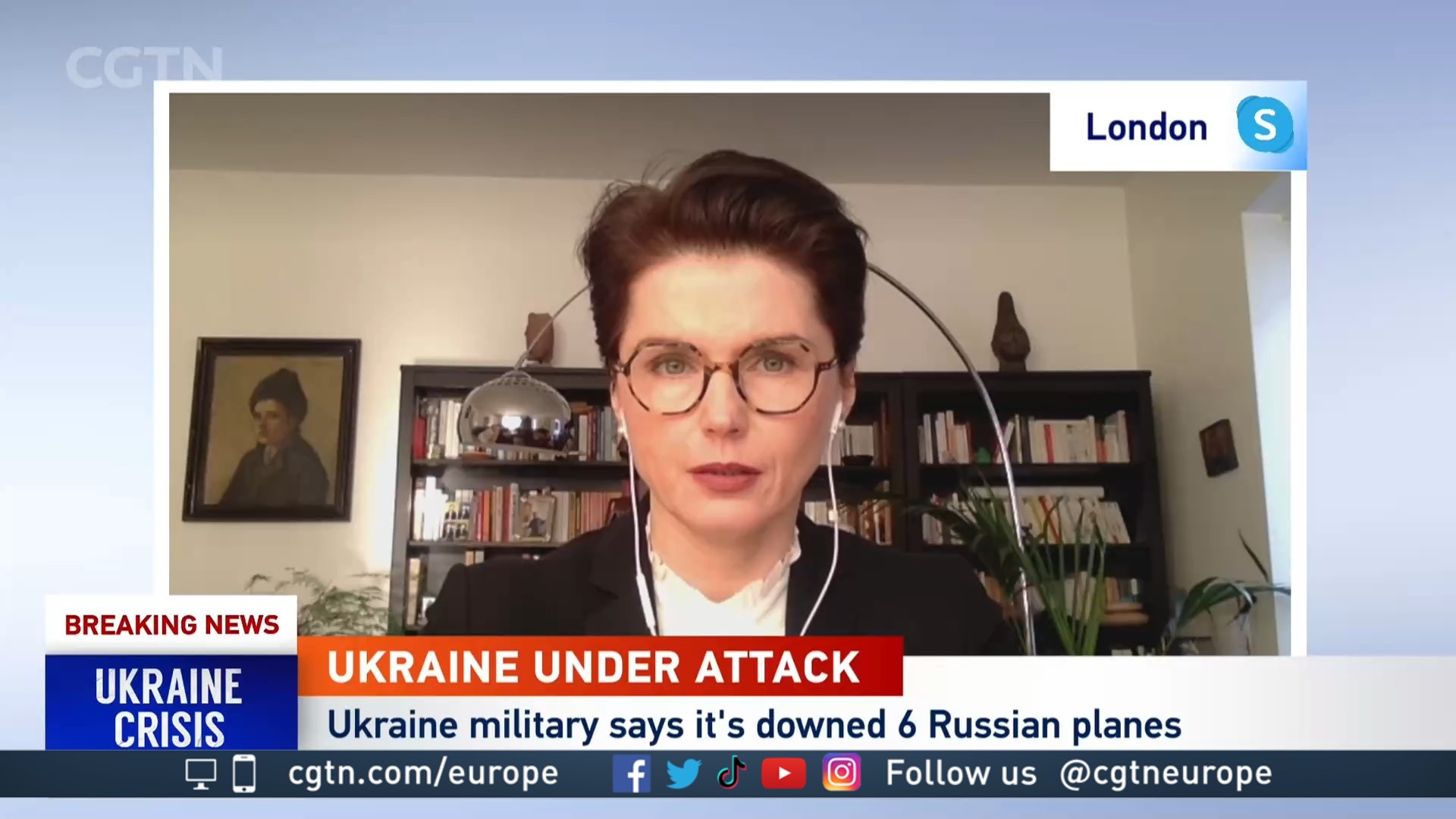04:06

Early on Thursday morning, Russia's president Vladimir Putin ordered a military operation to support the Russia-backed breakaway regions in eastern Ukraine, Donetsk and Luhansk.
Putin said the mission was to "protect people who have been subjected to bullying and genocide" and said his objectives were the "demilitarization and denazification of Ukraine."
Ukraine's Foreign Minister Dmytro Kuleba described the action as a "full-scale invasion" and appealed for allies to send a message to Moscow through strong action.
For the people of Ukraine, the future is uncertain. Many have fled their homes and those who remain are living under a state of emergency and a curfew.
CGTN Europe spoke to Orysia Lutsevych, the Head of the Ukraine Forum at the Chatham House research institution to get to the bottom of the one question on the tip of everyone's tongues: "What motivates Putin?"
What mindset and strategy is driving Putin's attack?
"He wants a political control over Kyiv. He wants to make sure that Kyiv is aligned completely with Russia. He doesn't believe Ukraine deserves to be an independent state, so he will try to take over the capital Kyiv on the attack that he launched in the early days of today. Actually, early hours in that kind of cowardly way while his own citizens were sleeping, especially when we know that a lot of these recordings and his addresses were prerecorded, including the meeting of the National Security Council. So I think he is launching this war in hiding from his own people."
What is the situation in Ukraine?
"Everybody woke up in the new world today, and unfortunately, this world is full of bombs.. What I hear is that this quite big movement of people towards western frontier of Ukraine next to Poland, but also that a lot of people are staying with their families in Kyiv. So far, Russians have been targeting military infrastructure, but they also destroyed several airports in the west of Ukraine. So the whole country is, you know, on one hand in the grip of an aggression. But on the other hand, the Ukrainian armed forces are putting up resistance. It's not 2014. Russia's war came to Ukrainian land in 2014, and I feel sorry that, you know, it has to come again."

Russian President Vladimir Putin chairs a meeting of businesses at the Kremlin in Moscow. /Alexey Nikolsky/Sputnik/AFP
Russian President Vladimir Putin chairs a meeting of businesses at the Kremlin in Moscow. /Alexey Nikolsky/Sputnik/AFP
What assistance does Ukraine require from the international community?
"It's an aggression or unjustified war. And I see what Ukraine needs is as much support for Ukrainian armed forces to protect the civilians, to protect their land. There has to be assistance in, you know, everything from logistics to medical equipment, evacuation hospitals. Ukraine needs land lease type of economic assistance so that it could purchase necessary things. There has to be a clear message on non-recognition of any illegitimate government that Putin will install and of course, sanctions on Russia. And here, I'll just say one thing: the Russian National Bank holds securities in assets in foreign currency. If Russian central bank is sanctioned, this will cripple the Russian foreign reserves substantially."
What is the main cause of this crisis in your mind?
"This is Russia's own U-turn into more autocratic governance at home, where President Putin is not accountable to anybody and can unilaterally launch a military aggression against the neighbor state. This is at the core of it - NATO is a defensive alliance - was never posing any direct threat to Russian territory, and Ukraine honestly has no perspective of becoming even a NATO member. What was threatening for Russia is the very existence of Ukraine that is governed in a democratic way, not the way Russia is governed today. This is how I see it."

